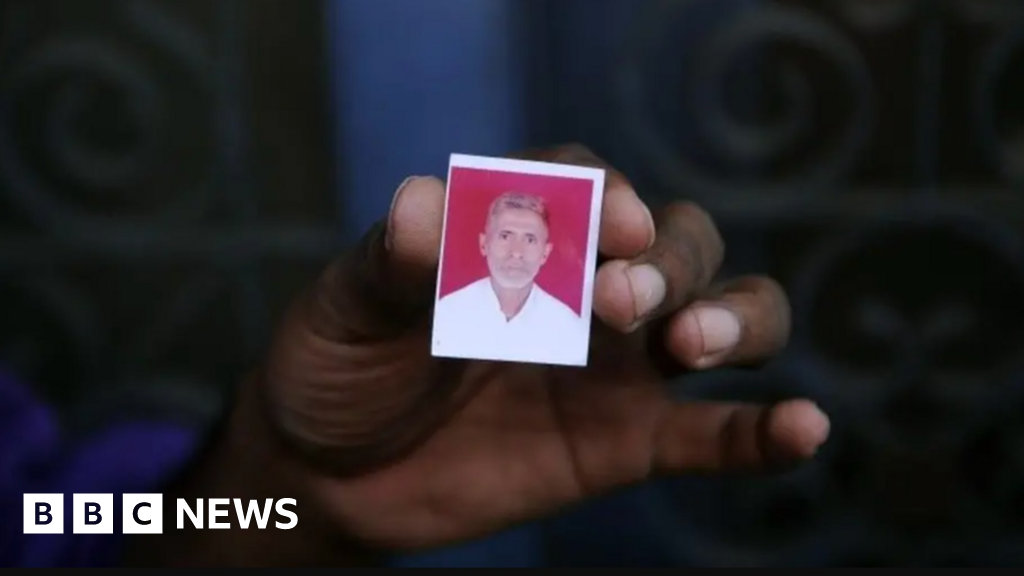In 2015, Mohammad Akhlaq, a 50-year-old Muslim man from Dadri in India’s Uttar Pradesh state, was brutally lynched by a mob over allegations that he had stored and consumed beef. This tragic incident, which shocked the nation and drew widespread condemnation, has recently taken a distressing turn for Akhlaq’s family as the Uttar Pradesh government has moved to drop all charges against the accused men. Despite this setback, Akhlaq’s family remains steadfast in their pursuit of justice, vowing to continue their fight against what they see as a grave miscarriage of justice.
The lynching of Mohammad Akhlaq occurred on the night of September 28, 2015, in the village of Bisada, located approximately 49 kilometers from Delhi, India’s capital. Akhlaq was sleeping alongside his 22-year-old son, Danish, when a mob armed with sticks, swords, and cheap pistols stormed their home, accusing them of slaughtering and eating beef. The attack was reportedly triggered after an announcement from a local Hindu temple claimed that someone in the village had slaughtered a cow and consumed its meat—a serious allegation given the cultural and religious sensitivities surrounding cows in India. Cows are considered sacred by Hindus, who make up roughly 80% of India’s 1.4 billion population, and many states, including Uttar Pradesh, have strict laws banning cow slaughter, as well as the sale and consumption of beef.
During the attack, the mob found some meat in Akhlaq’s refrigerator, which the family insists was mutton, and used it as “evidence” to justify their assault. Akhlaq was beaten to death on the spot, while his son Danish sustained serious injuries. The family’s account and subsequent investigations have consistently denied the claim that beef was involved. In fact, a local veterinary report later confirmed that the meat was goat, not beef. Nevertheless, the horrific incident became the first widely reported case of cow-related violence in India and ignited nationwide protests and outrage.
Following the lynching, 18 men were charged with various offenses including murder and rioting. These accused individuals, who include a juvenile as well as the son of a local Bharatiya Janata Party (BJP) leader, were released on bail and awaited trial. The initial chargesheet, which named 15 main accused and 25 witnesses, was filed three months after the incident. Over time, four more accused were added to the case, one of whom died in 2016. The case attracted significant media attention and public scrutiny, with many criticizing Prime Minister Narendra Modi and other BJP leaders. Some BJP members were accused of defending the attackers or downplaying the severity of the lynching, with one party leader even describing it as an “accident,” and another condemning the consumption of beef as unacceptable.
However, in a shocking development last month, the Uttar Pradesh government, which is led by the BJP, filed an application in a local court asking for the charges against the accused to be dropped. The public prosecutor cited “inconsistencies” in witness testimonies and questioned the reliability of the evidence presented. The application pointed out discrepancies in the number of accused individuals named by different witnesses from Akhlaq’s own family: his wife initially named 10 suspects, his daughter Shaista mentioned 16, and his son Danish cited 19. The government’s plea argued that such contradictions undermine the prosecution’s case and called for the closure of the proceedings. Furthermore, the application noted that weapons like firearms and swords, which were reportedly used during the lynching according to Akhlaq’s wife’s complaint, were not recovered by the police. Instead, only sticks, iron rods, and bricks were seized from the accused.
Adding to the controversy, the application stated that officials had recovered beef from the scene, which led to a separate case being filed against Akhlaq’s family in 2016 under the cow slaughter law—a case that remains pending in court. Akhlaq’s family has consistently denied these allegations, with their lawyer Mohammad Yusuf Saifi asserting that the case against them was intended to “pressure” and intimidate the family into silence.
The news of the government’s move to withdraw charges has devastated Akhlaq’s family. His younger brother, Jaan Mohammad, expressed profound shock and dismay at the attempt to close the case after nearly a decade of fighting for justice. “We never thought that

